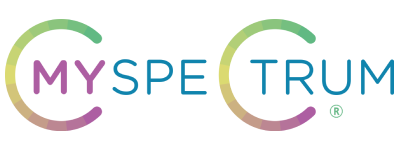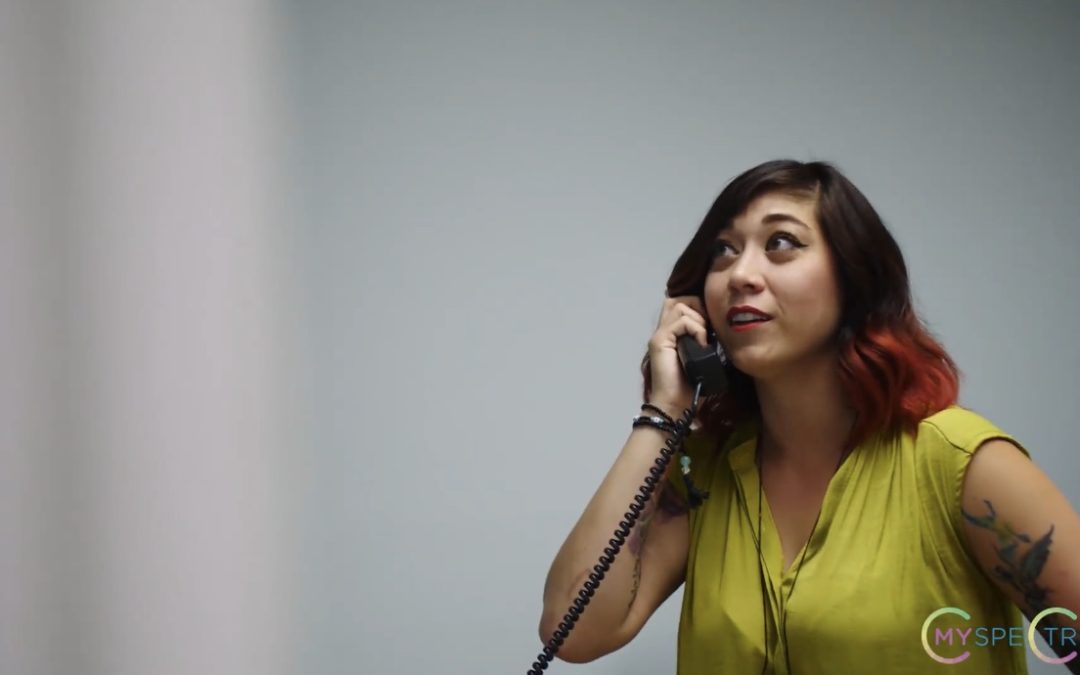Jenny Grim, LCSW, is an Outpatient Therapist at MySpectrum. Jenny joined MySpectrum in the Summer of 2020, amidst the Coronavirus Pandemic. Prior to joining the team at MySpectrum, Jenny provided telehealth services in other states. Her experiences providing telehealth elsewhere prepared Jenny for her out of the ordinary start at MySpectrum. Rather than starting her practice in the office, Jenny started off with providing solely Teletherapy as a result of the state-wide quarantine in Virginia. Here is her story about her experience practicing Teletherapy.
“Teletherapy has enabled me to offer care to clients where it simply would not have been possible otherwise. When I moved from out of state back up to the Virginia area, I had a pretty solid caseload of people with PTSD and other complex trauma histories. This meant that continuity of care was critical. This contributed significantly to the necessity of Teletherapy. In these instances, many clients have relational issues associated with their trauma, and as such a disruption in our therapeutic relationship would have been even more jarring than under normal circumstances. I have my own trauma history too, and so I understand this in a very personal way. Clearly, the Teletherapy platform (and a supportive administrative team) can allow me to continue my work with these types of clients and deliver to them the best that therapy has to offer. That a client will stay with a therapist across state lines also underscores the value in a therapeutic relationship.
There are some challenges with the medium, though. I will say that. Sometimes clients face issues that mirror my own in this area, particularly when it comes to separating out sessions from home-life. We often talk about the benefits that come with being able to work from home and of course from being able to meet your therapist from home, but at least for me there are some boundaries that I like to set up. Fortunately, this is an area where I get to implement a psychologically clever intervention for myself and for clients. What I will often do is actually host my Teletherapy sessions from different private locations to create a sense of creative transition between my home and where I’m working. I encourage my clients to do the same as necessary and as they are able to. Another trick to use here is known a “cognitive reframing.” In this case, and I think this can be useful for folks doing online learning, a person can get up, get prepared for leaving the home, walk out the door, and then turn around to sit back down in their seat at home for their therapy session. At first, it seems like it wouldn’t work, but in reality the subconscious psychological barrier that gets established really helps set up a boundary between home and therapy sessions where oftentimes sensitive and emotionally heavy issues are discussed. This is especially true for my clients who are recovering from trauma.
Overall though, the Teletherapy platform has benefits that outweigh any drawbacks. I personally like the structure that it gives to my clients. They often get to sit in environments during sessions that they are already familiar with, effectively creating a safe space to explore deeply personal thoughts and memories. Again, this tends to be really important with trauma therapy. It also makes intakes and assessments feel easier to have them conducted out of someone’s home, virtually. First therapy sessions can be challenging, so the comfort level is very important. I’d also add that with Teletherapy, I’m still able to remain emotionally attuned to my clients at a high level. Eighty percent of communication is body language, and I find that I’m still able to read this, along with eye contact and facial expressions in such a way that I am cued to emotional disturbances.
I’m passionate about helping those who have histories of trauma through the work of therapy, and I think that it’s wonderful that I can still do this while remaining socially distant, no matter the reason for that.”
If you would like to schedule an appointment with Jenny for yourself or your child, please give us a call: 804-924-2236. Jenny’s bio can also be found here.

